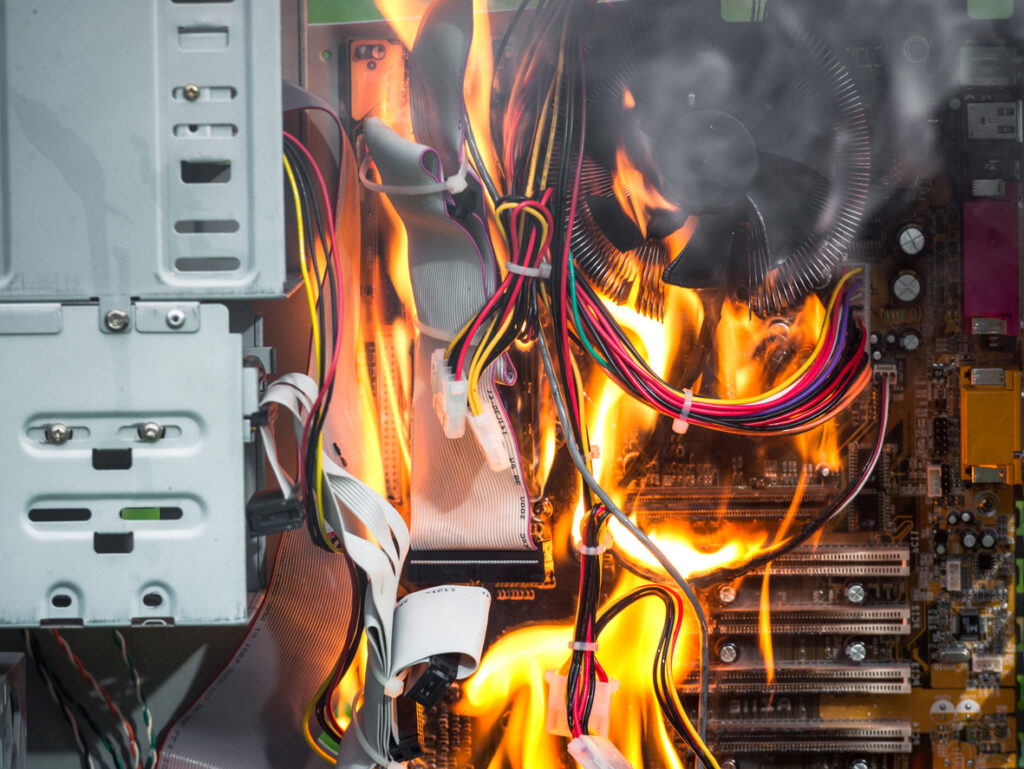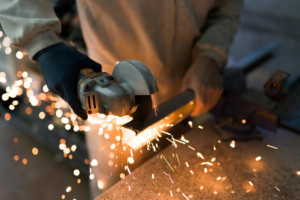World Day for Safety and Health at Work: Expert fire safety advice for tradespeople

Ahead of World Day for Safety and Health at Work (28th April), a fire safety expert has shared advice for tradespeople on protecting themselves from different types of hazards in the workplace.
Recent research by IronmongeryDirect, the UK’s largest supplier of specialist ironmongery, revealed that 85% of tradespeople wouldn’t know what to do if they encountered a fire at work.
Yet the industry often involves working in environments where the potential of a fire can be high.
With this in mind, the company has partnered with Edgaras Zilinskas, Director of Fire Immunity, to provide expert fire safety advice to tradespeople, including how to respond to different types of emergencies.
Creating a fire-safe work environment
More than nine in ten (92%) tradespeople wouldn’t know if a workplace or building was compliant with fire safety regulations. Edgaras advises:
“A safe working environment is essential for every business to protect employees and ensure legal compliance. The first step is having the building in which you operate undergo a fire risk assessment, as this will highlight any areas for improvement or potential risks.
Edgaras also emphasises the importance of fire safety equipment. We found that fewer than one in eight (12%) tradespeople always carry a fire extinguisher with them while working.
“Installing fire alarms and smoke detectors in every area is vital, alongside training staff on a fire safety plan. You should also install an adequate number of fire extinguishers on every floor, in easily accessible locations.”
How to deal with different types of fire
The appropriate response to a fire depends on its type, however, the vast majority (86%) of tradespeople say they wouldn’t know the difference.
Edgaras says: “If you discover a fire at work you need to act as soon as possible. However, it is paramount that you tackle different types of fires in the correct way.
1) Electrical fires – Electrical fires should be dealt with by cutting the power, and then spraying the area with a dry powder or water mist fire extinguisher.
2) Gas fires – For gas fires, turn off the gas supply, cover the flames using a fire blanket and utilise the appropriate fire extinguisher.
3) Chemical fires – Chemical fires can be dangerous to tackle, but try to remove any sources of fuel, heat and oxygen by using carbon dioxide, foam or dry powder fire extinguishers.
“Always prioritise the safety of yourself and others – if a fire quickly grows out of hand you should evacuate the building immediately; and in all cases, you should contact the emergency services ASAP to tackle the fire and to ensure no one has inhaled any hazardous fumes.”
Making your equipment fire-safe
1) Follow regulations
“The most important safety measure regarding tools and equipment is always following the regulations and advice. Thorough and up-to-date training is essential on all tools or equipment, especially new and unfamiliar units.
2) Regularly maintain all equipment
“All tools and equipment should be regularly maintained and checked for any signs of damage to ensure everything is in good working condition. Failure to do so, particularly for electronic items, could lead to an electrical fire. Closely check wiring in particular, as this can deteriorate with age, and exposed wires are highly dangerous.
3) Store tools in a safe space
“Always store all tools and equipment in a suitable area. For example, a room with a fire safety door that is closely situated to fire extinguishers and other tools, or a dedicated space with sufficient shelving. Tools should never be placed on the floor because they may pose a tripping hazard or become dirty or damaged, which may lead to additional problems – such as fires.”
For more expert fire safety advice, visit: https://www.ironmongerydirect.co.uk/blog/expert-fire-safety-advice-for-tradespeople


